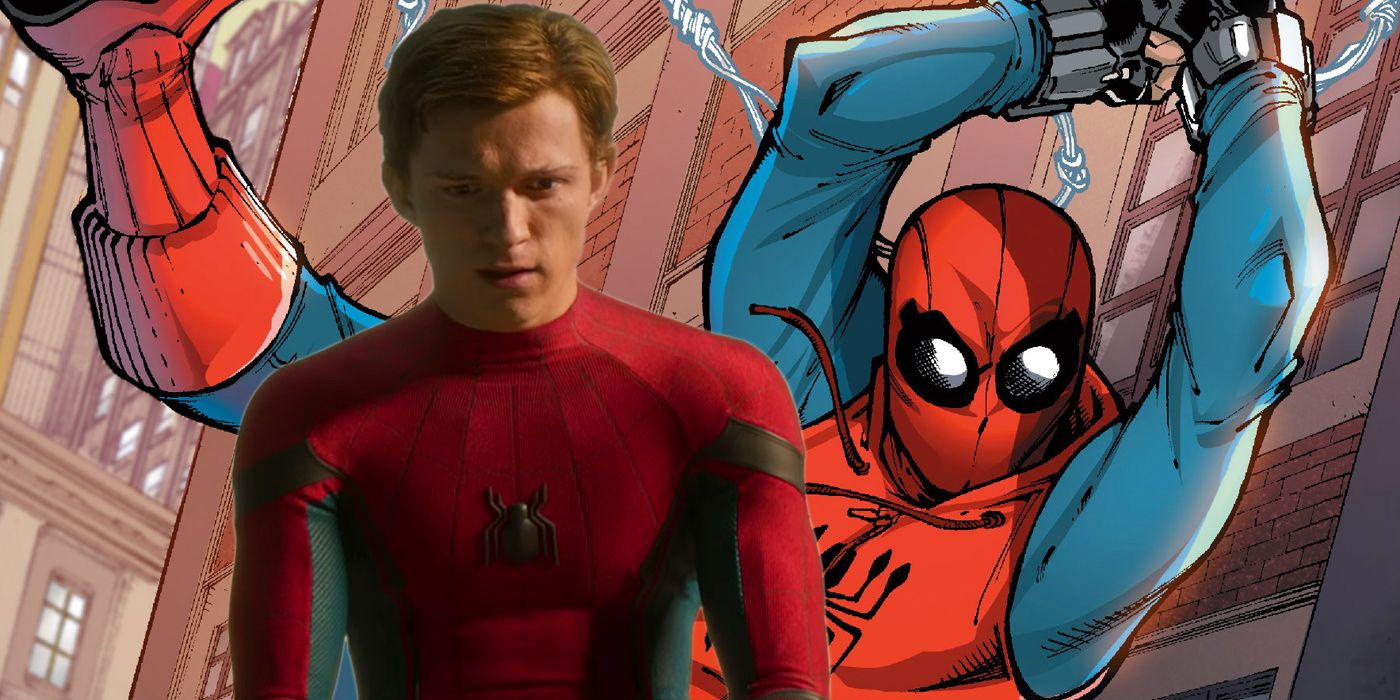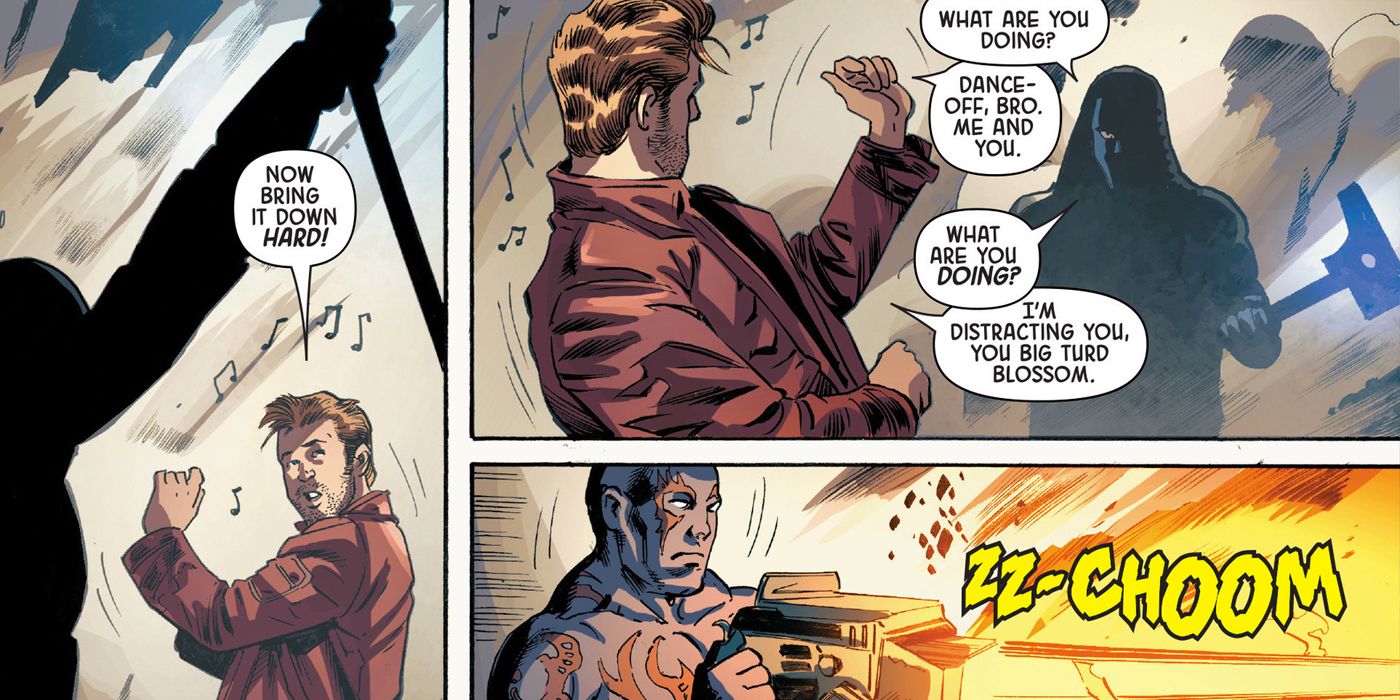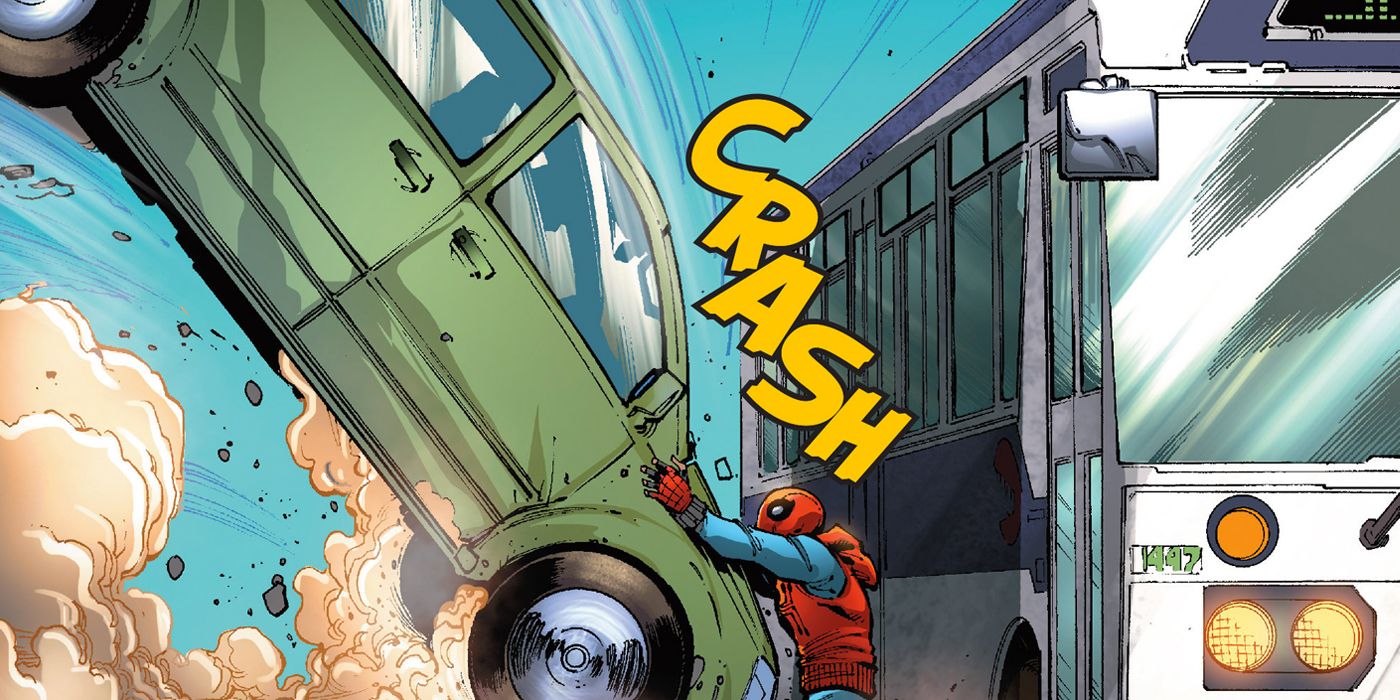Marvels MCU Prelude Comics Have Become Useless
Marvel’s MCU Prelude Comics Have Become Useless
Contents
Marvel’s MCU Prelude comics used to reveal major information. Now, they just retell the previous film. What happened?
You Are Reading :[thien_display_title]

The Marvel Cinematic Universe is something of a misnomer. While it is predominantly a mammoth movie-based series, with 14 films so far and another dozen planned between now and 2020, that’s not the extent of Marvel Studios’ epic shared universe. Obviously there’s TV, which is currently divided between ABC’s Agents of S.H.I.E.L.D. and Netflix’s Defenders universe, and will soon welcome Hulu’s Runaways and ABC/IMAX’s Inhumans. But there’s also something else, something oh-so-fitting of Marvel: comics.
Although the MCU is mostly a screen event (in the multiverse it’s Earth-199999), it still has a finger in the comics pie; each major theatrical release comes with an accompanying Prelude comic that expands this specific corner of the world, introducing new characters and setting up plot threads. They’re far from essential – Marvel’s biggest success in crafting its mega-franchise has been how its movies function without any required pre-reading – but for die-hard fans it’s a new form to experience the story.
It’s not a bad business model for the company either. The fact that comic sales have been mostly unchanged by the explosion of movies based on their characters shows that there’s simply not much interest for cinema audiences in going out and reading the source stories – seemingly from a mix of disinterest, social stigma and labyrinthian continuity. The former two are hard to shake, but the third can be addressed by telling stories set within the MCU; they’re more likely bring in movie fans and for comic readers weaned on alt takes they’re pretty damn interesting too.
Or at least, they’re interesting in theory. In actuality they can be a bit flat. Let’s take a look at the 2017 offerings: Guardians of the Galaxy Vol. 2’s is pretty much just the plot of Guardians 1 repeated, Spider-Man: Homecoming’s (based on the first issue) will be simply Civil War redux – the only divergences are a show of Spidey’s homemade-suit vigilantism, which was already glimpsed in Tony Stark’s videos in the movie – and Thor: Ragnarok’s is mainly set to be retelling Hulk’s creation. They’re little more than glorified print recaps, which begs the question – are these comics worth existing any more?
MCU Storytelling Has Evolved Beyond The Comics

It’s not like Preludes were always just the visual version of a “Based on the movie” novel adaptation. The further you go back, the more expansion you get; for Iron Man 2 we got to see Stark and Hammer’s rivalry in more detail (including some intervention by General Ross), Age of Ultron’s “This Scepter’d Isle” explained Loki’s sceptre’s influence on Quicksilver and Scarlet Witch’s powers as well as giving a bit more time with Baron Strucker, and as recent as last year Doctor Strange’s prequel took a deep dive into the role of various sorcerers, including a pre-corrupted Kaecilius. Why are the recent ones so bland?
The obvious problem is one of storytelling. The MCU’s approach has refined and matured over the past decade to the point where it’s able to connect everything so intricately there’s not really much need for exposition. In Phase 1, the narrative was so convoluted that three films (The Incredible Hulk, Iron Man 2 and Thor) technically happened concurrently and needed extra material to plug the gaps; the Marvel One-Shot “The Consultant” explained why Tony Stark’s S.H.I.E.L.D. affiliation kept flipping, while The Avengers Prelude “Fury’s Big Week” explicitly cleared the timeline. But now, everything runs seamlessly. The Avengers directly influenced Iron Man 3, Thor: The Dark World and Captain America: The Winter Soldier, and the connections between Age of Ultron and its successors is even tighter: Captain America: Civil War and Thor: Ragnarok pick up the two key threads left by the second Avengers almost directly. There’s obviously downtime between them, but in terms of telling genuinely significant stories that can have some bearing on the movie’s narratives, pickings are slim beyond repetition.
For the 2017 movies we’ve already discussed it’s particularly pronounced; Guardians 2 is set only a few months after the first film, and we know they’ve not faced any comparable adventures since then, whereas Spider-Man: Homecoming looks like it will continue directly from Civil War (the fallout is definitely the key motivation), leaving little room for delving into Peter’s character in the interrim. Thor: Ragnarok is likewise picking up the God of Thunder’s Infinity investigation and while there’s the question of how Hulk gets to Sakaar, that’s probably going to be a plot point rather than some unexposed backstory.
This structure is excellent from a movie standpoint, meaning that audiences can immediately dive right into the new adventures without having to catch up on reams of between-film context; and, regardless, any interesting nuggets of information are otherwise revealed more readily and widespread through interviews and filmmaker comments.. New heroes and worlds benefit a bit more (we’re sure to learn our first big details about Wakanda in Black Panther’s inevitable prequel run), but even that’s becoming of less worth with standalones built up in previous movies (Civil War told use everything we need to know about T’Challa). Essentially, it’s entirely possible that the MCU is at this point too advanced and fully operational to need such tie-ins beyond a business sense. And that business is the other reason.
Fractured Marvel

Using the word “Marvel” as a banner term to describe the company behind all Marvel-affiliated content is almost as big a misnomer as the “cinematic” in MCU. The movies are the product of Marvel Studios, which since a corporate restructuring in 2015 actually reports directly to Disney, completely side-stepping Marvel Entertainment. That company is behind all other parts of the brand – obviously comics and merchandise, but also the television shows. That’s why there’s such a disconnect between the big and small screen stories and little chance of a crossover (it’s also why Iron Fist’s failure shouldn’t be indicative of any potential issues with future movies).
And it’s Marvel Entertainment – specifically subsidiary Marvel Comics – who are behind these Prelude runs. Up until the changeover when the Studios was under the same umbrella, this was presumably rather harmonious, but since that there’ll be decreased communication (at least going by the comparable TV relationship). This leaves writers and artists with little creative input on the story and unable to add much beyond what’s been shown on screen. It’s unlikely to change any time soon either, so we’re stuck in the purgatory of regurgitation. Based on the Guardians and Spidey comics, they’re even a step down from traditional adaptations, which at least usually add in some unique flavor; these comics are rushed, simplistic takes on the material.
When you have a situation like this, the exact purpose of the comics changes. Instead of being illuminating and providing interesting additional info about movie plot points, they’re just a piece of merchandising – an object that’s more about what it represents than the story it actually contains. From a merch standpoint, that’s fine enough, but it does go against the established reason why you’d explore this avenue in the first place.
Whether Marvel needs to – from a financial standpoint – try and segue its film audience into print is a debate by itself, but in the current situation it feels that Prelude comics aren’t the way to do it. And we may be seeing things change soon; starting with Guardians 2, the company is going to start advertising its regular books ahead of feature films and on TV. That sounds so obvious, but for decades the actual presence of comics in mainstream avenues has been muted, so this approach will be infinitely more inclusive and have the potential for proper dividends.
–
The tie-in comic has always been the awkward sibling of proper graphic novels, but when they provide something bigger about the world – for all the movie’s flaws, Batman v Superman’s prequel did try and link the end of Man of Steel to Dawn of Justice and expand the DCEU – they can be a useful tool. The MCU has evolved beyond such purposes, both on screen and behind-the-scenes, so perhaps it’s time they saved the paper.
Next: How Much Longer Can the Marvel Movies Ignore Marvel TV?
- Guardians of the Galaxy Vol. 2 (2017)Release date: May 05, 2017
- Black Panther (2018)Release date: Feb 16, 2018
- The Avengers 4 / Avengers: Endgame (2019)Release date: Apr 26, 2019
- Avengers: Infinity War / The Avengers 3 (2018)Release date: Apr 27, 2018
- Captain Marvel (2019)Release date: Mar 08, 2019
- Ant-Man & The Wasp (2018)Release date: Jul 06, 2018
Screen Rant’s Managing Editor, Alex Leadbeater has been covering film online since 2012 and been a permanent fixture of SR since 2016. Based in London, he oversees a global news & features team based in NY, LA and beyond. You may have also seen/heard him on the Total Geekall podcast, unaffiliated YouTube channels, BBC Radio and CBC News. Growing up in the English countryside on a mixture of Star Wars, The Simpsons and Aardman, Alex is a lifelong movie obsessive. Despite a brief jaunt in Mathematics at Durham University, film writing was always his calling. He’s covered a wide range of movies and TV shows – from digging out obscure MCU Easter eggs to diving deep into deeper meanings of arthouse fare – and has covered a litany of set visits, junkets and film festivals. He once asked Tom Cruise about his supposedly fake-butt in Valkyrie (he swore it was all real).
Link Source : https://screenrant.com/marvel-mcu-comics-prelude-bad/
Movies -RHOC Source Says Braunwyn Didnt Offer Shannons Teen Daughter Drugs
My Hero Academia Reveals What Evil Deku Would Have Been Like
Next James Bond Why The Most Popular Picks Won’t Happen
Shadow & Bone Trailer Reveals First Look At The Sun Summoners Powers
Metroid Prime 4 Potentially Coming Out In 2023
Mad Max 2 The Road Warrior 10 BehindTheScenes Facts About The Legendary Sequel
Mad Max What Happened To The Oceans (Did They Disappear)
